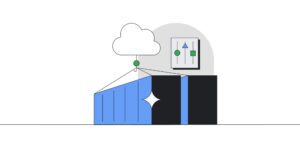
[ad_1]
To date in our BigQuery Admin Reference Information, we’ve mentioned theBigQuery useful resource modeland talked by the various kinds of tables and routines. This week, we’re speaking about execution and workload administration sources inside the hierarchy – jobs, commitments, reservations and assignments. As all the time, we’ll embrace hyperlinks again to the documentation so you’ll be able to stroll by SQL and API examples.

BigQuery jobs
A job is a useful resource inside a venture, it represents an motion that BigQuery runs in your behalf. There are a number of completely different job varieties, every with its personal per-project quota.
- Load: ingests knowledge from a POST request, Google Cloud Storage or different sources to create a managed desk
- Question: invokes the question engine to execute a SQL question. This consists of SELECT statements, DML, DDL, and scripts (in addition to process calls)
- Copy: strikes dedicated knowledge from one (or extra) supply tables to a vacation spot desk
- Export: writes the contents of a desk out to Cloud Storage utilizing the desired format and choices
Different actions like itemizing sources or getting metadata about sources will not be managed by a job. If you load, question, copy or export knowledge, BigQuery schedules and runs the job for you. A Job has a person id (who ran the job), and a location (the place the job was run). BigQuery determines the situation to run the job based mostly on the datasets referenced within the request, because the job itself should be run in the identical area the place the information is saved. The info you’re leveraging within the job could also be saved in a unique BigQuery venture than the place the job itself is executed.

As a result of jobs can doubtlessly take a very long time to finish, BigQuery executes them asynchronously – every job is run independently, and also you don’t want one to complete earlier than beginning the subsequent. Every job is assured to make progress to a Performed state. You’ll be able to ballot the job for its state because it progresses – both by the API or by checking the standing within the Question Historical past panel for question jobs or the Job Historical past panel for different jobs. Utilizing the Job ID, you can even share a linkso that different BigQuery customers can view metadata concerning the job within the console, or question theinformation schema for execution particulars.

Compute capability
So now you realize that every time you’re querying knowledge inside BigQuery, a job useful resource is created and executed in your behalf. However, to ensure that that job to run it wants entry to computational sources. That is the place a BigQuery slot comes into play!
A slot is a unit of computational capability. It’s principally a employee, made up of CPU, RAM and Community. Since BigQuery likes to divide-and-conquer work – working elements of every activity in parallel – extra slots often signifies that the question will run quicker.

With regards to executing jobs, BigQuery makes use of a good scheduler. Which means if one question is working in a selected venture, that question could have entry to all the slots obtainable for that venture – so it ought to run actually quick! If, as a substitute, two queries are executing then they may every get entry to half the quantity of slots, and so forth. BigQuery makes use of its dynamic question planning capabilities to verify in at varied occasions all through execution and determine what number of different queries are working to find out what number of slots can be found for every one. For you, which means it’s impossible that one question will hog all of the compute sources!

How do I management the variety of slots?
When you use on-demand pricing, the place you pay for the variety of bytes processed by queries, then you definately’ll get entry to 2,000 slots in every venture. With flat-ratepricing you should buy a devoted variety of slots by shopping for a capability dedication. Commitments buy a specified variety of slots, over some period of time, in a sure location. This may both be an annual dedication, month-to-month dedication or a flex dedication. Flex commitments are solely 60 seconds, which means you’ll be able to cancel any time after 60 seconds. Whereas long term commitments supply decreased per-slot pricing, shorter time period commitments could be helpful to deal with seasonality in your workloads (e.g. everyone seems to be analyzing your retail transactions knowledge after Black Friday) or check out queries with entry to particular slots.
The BigQuery reservation mannequin
After you have your slots, you’ll be able to go one step additional and create a reservation. That is basically a bucket of slots that may be allotted in ways in which make sense to your group. With a reservation in place, you’ll be able to create an task that delegates the slots to particular tasks, folders, or the whole group. For instance, we would create a reservation for use for knowledge science (ds) workloads, after which assign the information science folder (containing ds_project_a, ds_project_b and ds_project_c) to it. One beauty of BigQuery is that it robotically shares idle slots, so if nobody is working queries within the ds folder, workloads from elt or dashboard tasks can use them as a substitute.

Who wants a reservation?
Flat-rate pricing is most relevant for 2 causes: (1) you need to enhance the variety of slots obtainable to enhance a question’s efficiency, or (2) you need to have predictable and managed prices. Many occasions prospects use BigQuery on-demand when workloads are predictable, which means they’ve a good suggestion of how a lot knowledge the queries will scan. On the flip aspect, workloads like ad-hoc querying will not be predictable, so it is sensible to assign a reservation – it is perhaps the case that the question runs a bit slower, when you’ve got allotted lower than the two,000 slot default, however there will probably be no surprises if you get your invoice.
Luckily, you don’t want to select one pricing mannequin for all of your BigQuery workloads – you’ll be able to have designated tasks with out an task that can run on-demand. When you’re simply getting began with reservations you’re in all probability questioning – what number of slots do I would like to purchase? We’ll be going into particulars on monitoring slot utilization and sizing your reservation in just a few weeks, however within the meantime take a look at this weblog submit, and look into these Knowledge Studio templates and the Looker BigQuery Monitoring Block.
Be sure you hold a watch out for extra on this sequence by following me on LinkedIn and Twitter!
[ad_2]
Source link





